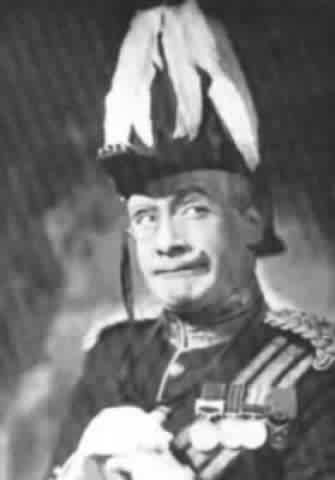|
|
|
 |
When Martyn Green left the Company on the outbreak of war his roles were taken over by Grahame Clifford, who played them with great success until 10th August, 1946.
Born in Burnley, Grahame Clifford studied at the Royal Manchester College of Music, and made a hit in "The Marriage of Figaro", which the students presented at the Free Trade Hall in 1928. He came to London to create the part of Ford in "Sir John in Love" by Vaughan Williams. This led to his being awarded the Sir Ernest Palmer Operatic Exhibition of the L.R.C.M.
While still a student he appeared with the Carl Rosa Opera Company at the Strand Theatre, and later became principal baritone, singing Rigoletto, Tonio, Alberich, Dr. Miracle, etc. This he gave up for freelance concert work and straight acting in character parts in London, and began producing at the Westminster Theatre.
In the five years immediately before the war he produced 35 plays and 6 operas! In addition, he did a great deal of radio and television work, making his T.V. debut as King Claudius in W. S. Gilbert's "Rosencrantz and Guildenstern". He played principal baritone roles with the Covent Garden Opera Company, and in the Grand International Opera Season.
Grahame Clifford was still at the Royal Opera House when Richard Watson bullied him into auditioning for Rupert D'Oyly Carte, who immediately offered him a contract.
Before making his debut with the Company in Edinburgh on Christmas Day, 1939 - his birthday - he was coached by I. M. Gordon, who had worked with Gilbert himself. Very wisely Mr. Carte insisted that his new comedy star should not be imitative of his predecessors. He wanted a fresh mind and a fresh interpretation brought to the parts, and Grahame Clifford soon showed that he could remain faithful to the tradition while giving his own individual touch to each part.
On 5th January, 1940, he had the distinction of presenting a new Jack Point in Peter Goffin's controversial production of "The Yeomen of the Guard", and won critical acclaim for his performance. Indeed, everywhere the Company went, the critics lavished praise on Grahame's work. The Evening News described him as "a first rate comedian", and the Liverpool Echo thought his Ko-Ko "a' comic cameo of the first order, nimble in movement, original in conception, and good to hear". Other reviews refer to his considerable vocal skill and acting ability-"He just lets Gilbert have his say and, more importantly, he gives us Sullivan's notes . . . the monstrously difficult 'nightmare' song he put over more clearly than I have ever heard it rendered." (The Daily Post).
Popular with his colleagues and with the public, Grahame left the Company in 1946, after a six-week season at Hammersmith, and the following year saw him back at Covent Garden. Eventually he retired to New Zealand,
| Artist Index | Main Index |